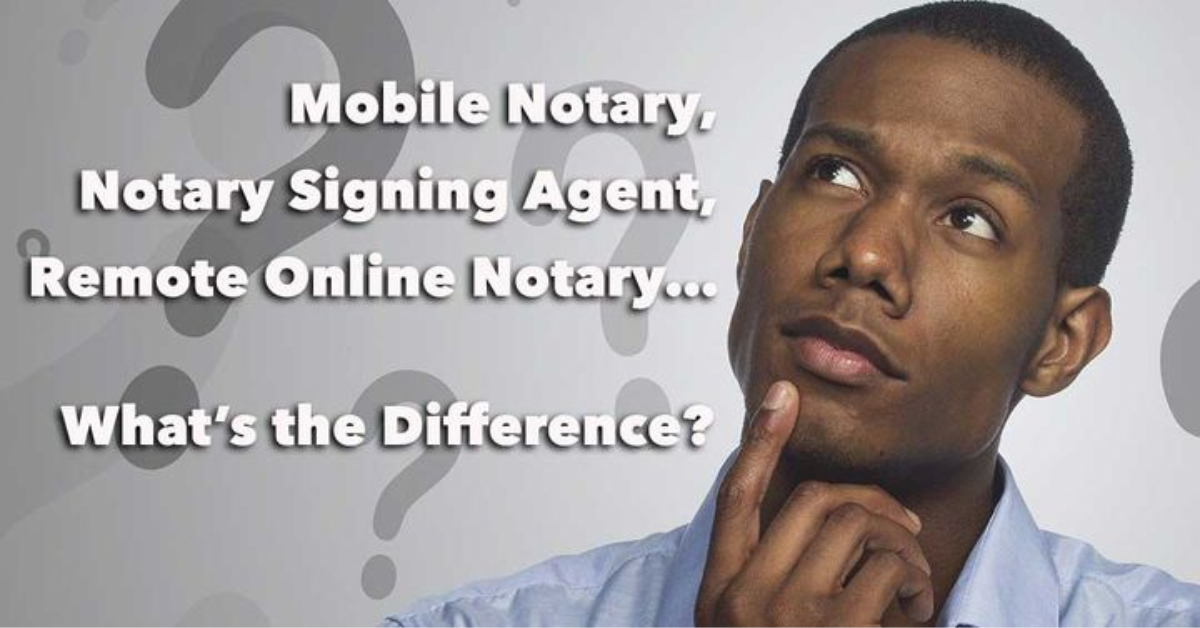Notary Public Underwriters Blog
Mobile Notary, Notary Signing Agent, Remote Online Notary… What’s the Difference?
- Details
- Published: March 1, 2022

Similar, but different.
A Mobile Notary, Notary Signing Agent, and Remote Online Notary (RON) are not all the same. It’s important to know the difference. Mobile Notaries, Notary Signing Agents, and Remote Online Notaries are all required to have an active notary commission. However, that is where the similarities end.
Have stamp. Will travel.
The only difference between a Mobile Notary and a regular Notary is travel. A Mobile Notary commutes to the customer’s location to perform basic notarizations instead of having the client come to them. In some states, a Mobile Notary may charge additional travel fees in addition to the fee for notarization. A Notary can perform Mobile Notary work anywhere within the state in which he/she/they are commissioned as a Notary Public. If Mobile Notary work interests you, check your state’s guidelines on what you may charge for travel.
For example, Florida Notary law does not specify a certain amount for travel fees related to notarial acts. In the absence of any statutory rule, the Notary may charge a reasonable fee for travel expenses as long as the requester is made aware of the fee amount prior to the travel. The travel fee must be billed separately from any fees for notarial services.
Real estate, loans and more!
Notary Signing Agents perform notarizations on loan documents. They may travel to the location of the signers in order to do so, but unlike Mobile Notaries, a Notary Signing Agent should be background screened, educated on the nuances of specific Signing Agent duties, and certified prior to performing Notary Signing Agent work. In some states, a Closing Agent license, a Title Insurance license, or other specialized license may also be required. Signing Agent work varies from state to state. Certain states restrict Signing Agent activities. If you are interested in becoming a Notary Signing Agent, check with your state’s governing authority in regards to what is required for Notary Signing Agent work.
Physical presence not required.
Remote Online Notaries use audio-video technology to perform notarial acts when the signer is in a different physical location than the Remote Online Notary. Through live audio-video connection via a secured platform, the Remote Online Notary will verify signer identities, affix digital signatures and stamps to the documents, and record the documents using a verified RON service provider. Remote Online Notary work is not available in all states. Be sure to check with your state’s Notary governing authority on whether or not Remote Online Notary work is allowed and what extra qualifications are needed.
For example, in Florida, you must complete a 2 hour state approved course covering the duties, obligations and required technology; obtain a $25,000 Notary bond, obtain a Notary Errors & Omissions insurance policy in the minimum amount of $25,000; select a RON service provider that is compliant with Florida law; complete a RON registration form, and submit the completed form along with a $10 registration fee.
While there are many differences between Mobile Notaries, Notary Signing Agents, and Remote Online Notaries, rest assured, the essential values and public service of a Notary Public remain at the core for all.
For more questions related to Mobile Notaries, Notary Signing Agents, and Remote Online Notaries, please contact our Customer Care Team. We’d love to assist you!
